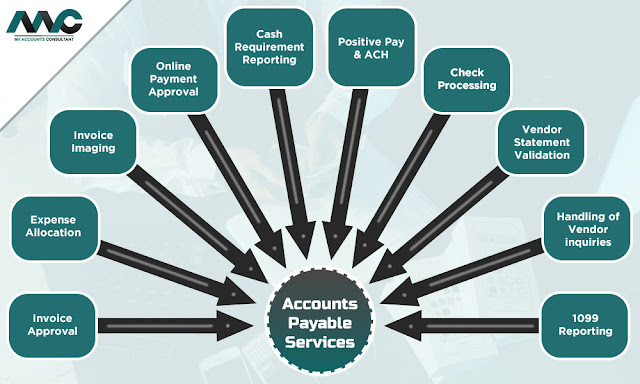What exactly is accounts payable (AP) and what do the entries entail? Essentially, it represents the obligation of a firm to pay off their debts to the respective creditors and suppliers in a stipulated timeframe. The failure to make these payments can result in your business defaulting. While the balance sheet is filled with lots of information and many sub categories, none of these categories can even be compared to the AP section. Here, you can manage the records of the money which you might owe any party that enables your business to continue operating. As an inexperienced business owner, it can be overwhelming to keep track of your accounts at the start.
Why
is this Section So Important?
The accounts payable section in the books of your business is so important because it captures the short-term liabilities that you have to deal with. It is usually marked by IOUs from your business to an external entity. However, note that it is only credited when the invoices have been received. When these bills have been paid, then it will be debited. The account can be found under the current liabilities account on your company’s balance sheet. It is useful because it shows you the grand total of money that your business owes to lenders and vendors.
Common Trends
If you see that your accounts payable section seems to be growing larger, instead of shrinking, it means that your company is buying more items on credit. If this is the case, you should relook your business model and pay for things in cash, or reduce your spending to reduce the amount of debt. Conversely, if the opposite were to happen, you might be paying back your debt at an unsustainable rate. As such, having a firm grasp over the spending and returning habits of your company is important when you are optimizing the cash flow of your business.
How Can You Record Accounts Payable?
If you have chosen to use double-entry accounting for your business, you will need to account for an offsetting debit whenever you credit anything into the ledger. Recording your accounts payable is pretty simple. All you need to do is to credit the account every time your business gets a bill or an invoice. Once this is done, add a debit in order to offset the credit to balance your balance sheet. Typically, you will find that the expense account that is linked to the item you purchased on credit will be debited. Note that when you pay the bills, you need to debit it in your accounts payable. Doing so will help to decrease the current liabilities and will make your balance sheet more current. Balancing will require you to lower the cash balance for the same amount of money.

